|
Predicting Individual Contributions in Teamwork
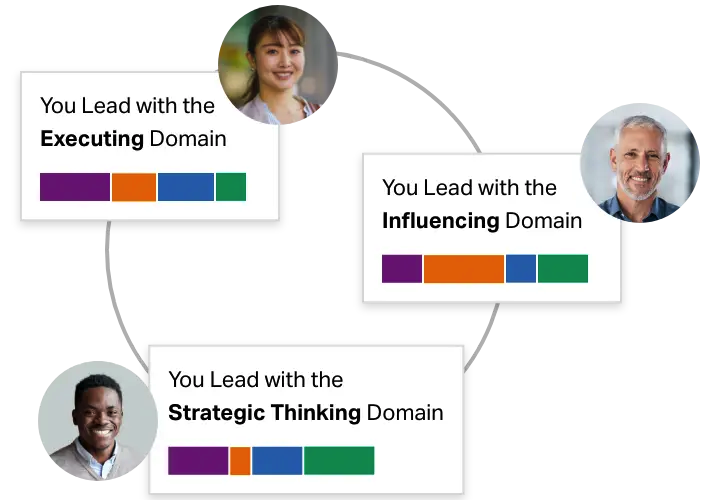
By: Jerry Fan
(Fourth year undergrad, UBCO)
September 2024 - April 2025
|
Description:
TBA
|
|
Process Models for Managing Teams
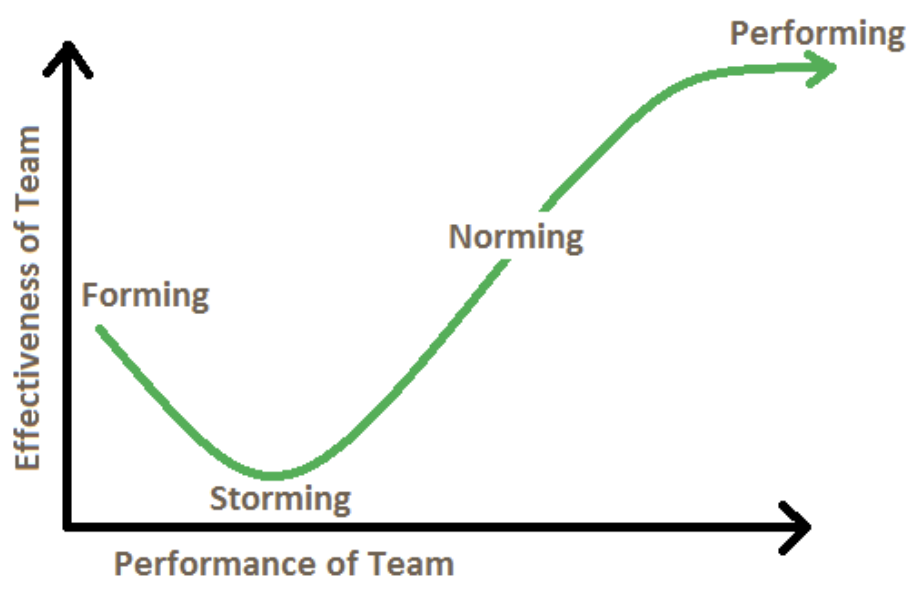
By: Komal Singh
(Fourth year undergrad, UBCO)
September 2024 - April 2025
|
Description:
TBA
|
|
Evaluating Machine Learning Algorithms for Predicting Team Performance

By: Murad Shahmammadli
(Fourth year undergrad, UBCO)
September 2024 - April 2025
|
Description:
TBA
|
|
Exploring NLP for Qualitative Analysis
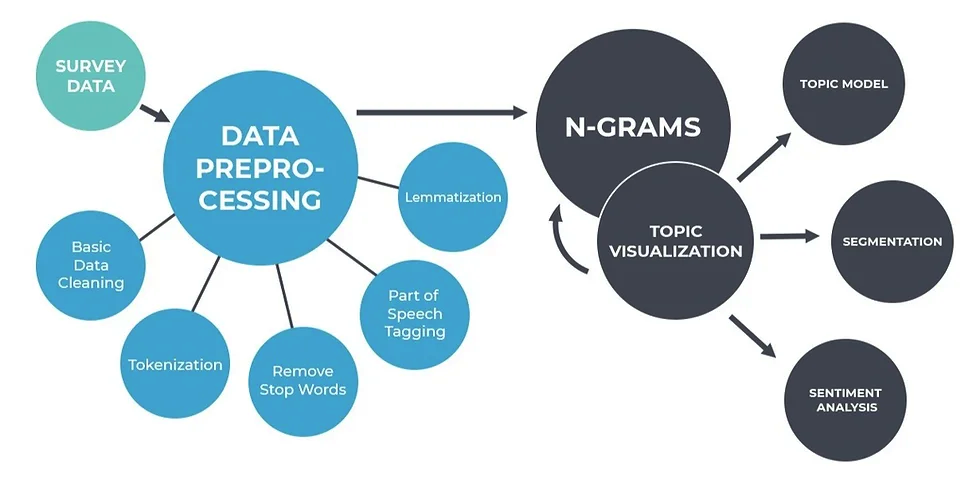
By: Samantha Hodge
(Fourth year undergrad, UBCO)
September 2024 - April 2025
|
Description:
TBA
|
|
Front-End Design and Development
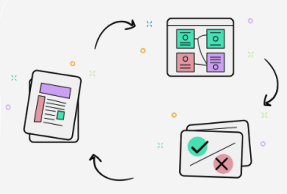
By: Tina Liu
(Fourth year undergrad, UBCO)
September 2024 - April 2025
|
Description:
TBA
|
|
Introduction to Large Software Projects

By: Colton Palfrey
(Fourth year undergrad, UBCO)
September 2024 - December 2024
|
Description:
TBA
|
|
Backend API Development

By: Kiet Phan
(Fourth year undergrad, UBCO)
September 2023 - December 2023
|
Description:
Kiet designed and developed an API to the algorithms repository that
facilitates access and use of our existing algorithms for team formation.
This allows other researchers, external to UBC, to access our algorithms and
use it for their front-end application or for their evaluation comparison
purposes. The API was deployed and tested on a server. A simplified front-end
was developed to demonstrate the utility of the API.
|
|
Comparing Optimal and Approximate Algorithms for Team Formation
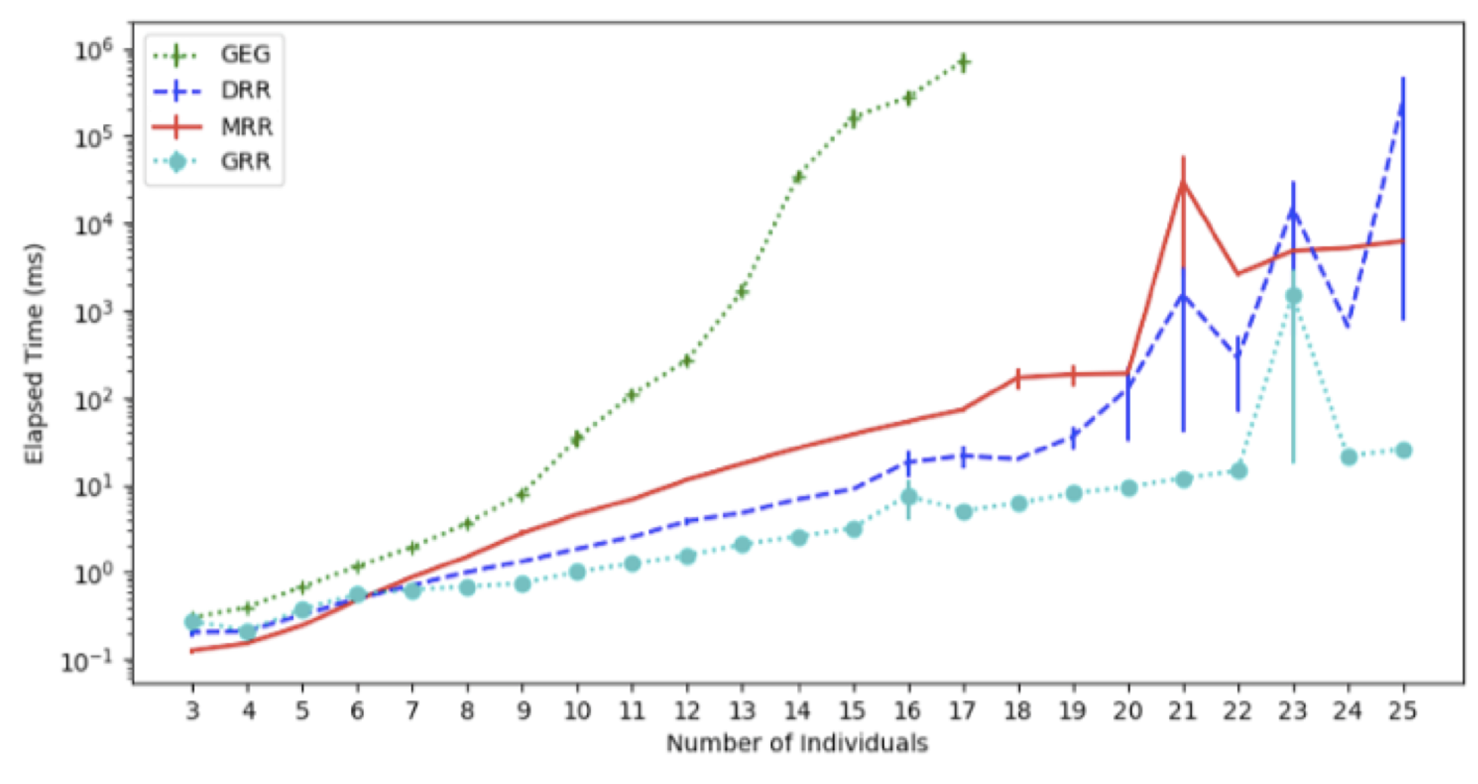
By: Kiet Phan
(Fourth year undergrad, UBCO)
September 2023 - April 2024
|
Description:
Kiet reproduced several state-of-the-art AI algorithms for group
formation and compared their theoretical and empirical performance. His
evaluation identified the strengths and weaknesses of these algorithms,
providing insights to the various ad hoc approaches taken in the field.
|
|
Benchmarking Team Formation Algorithms
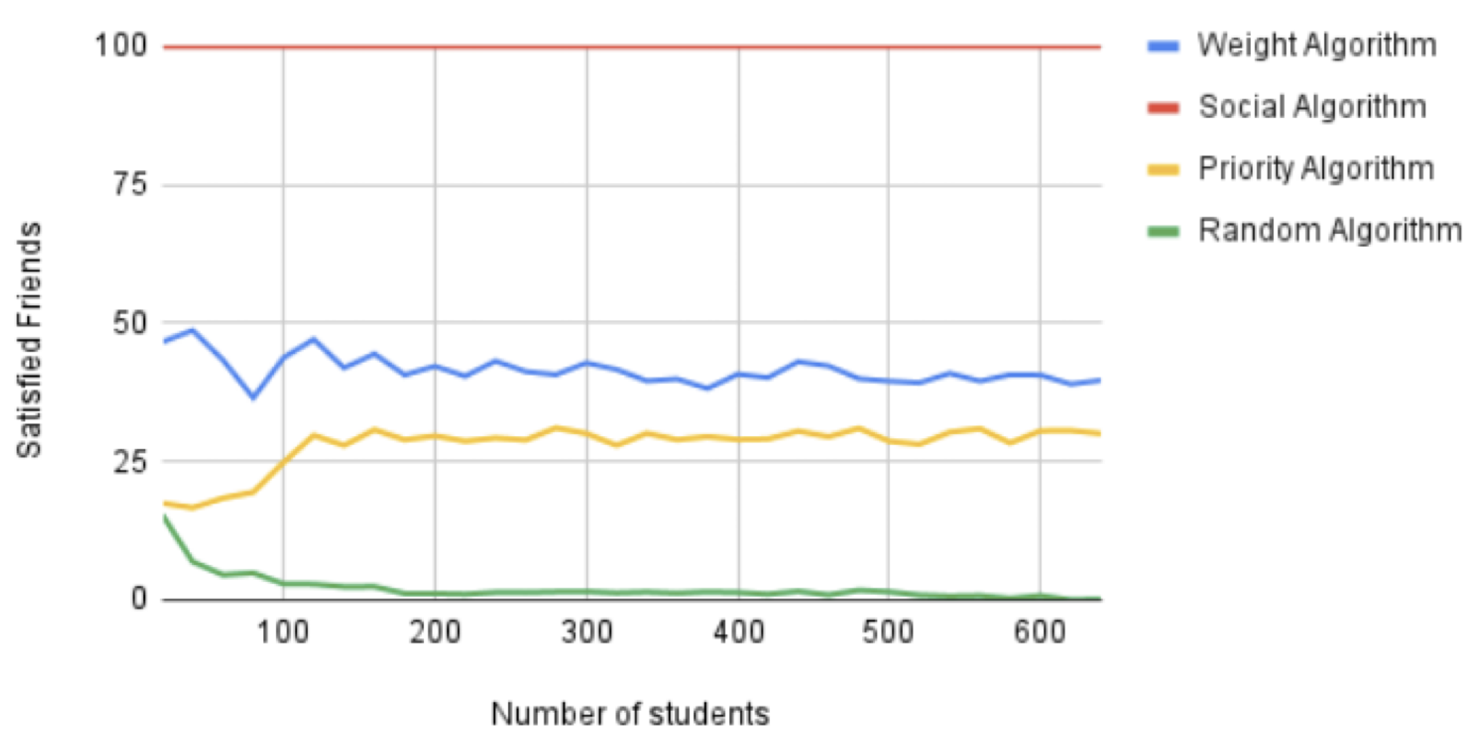
By: Seth Akins and Justin Schoenit
(Fourth year undergrad, UBCO)
September 2023 - April 2024
|
Description:
Extending on an existing algorithm and simulation framework, Seth and
Justin created a series of experiments to systematically evaluate different
group formation algorithms. As part of this work, they also build a module to
generate a synthetic class of students based on given distributions of
student characteristics. Additionally, they defined novel metrics to evaluate
the performane of these algorithms.
|
|
Investigating Differences in Peer Code Reviews
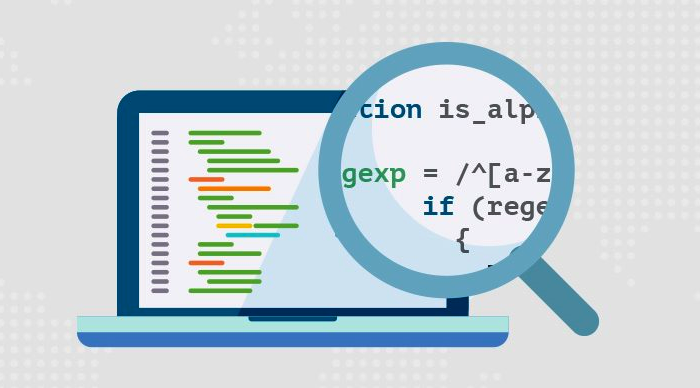
By: Angie Pinchbeck
(Fourth year undergrad, UBCO)
September 2023 - April 2024
|
Description:
Given a data set of code reviews, Angie applied qualitative coding
methods and developed behavioral codes to capture the intentions of the text.
These codes were then used as part of an epistemic network analysis (ENA)
which quantified the interaction patterns between different groups of people.
|
|
Gaining Trust with AI
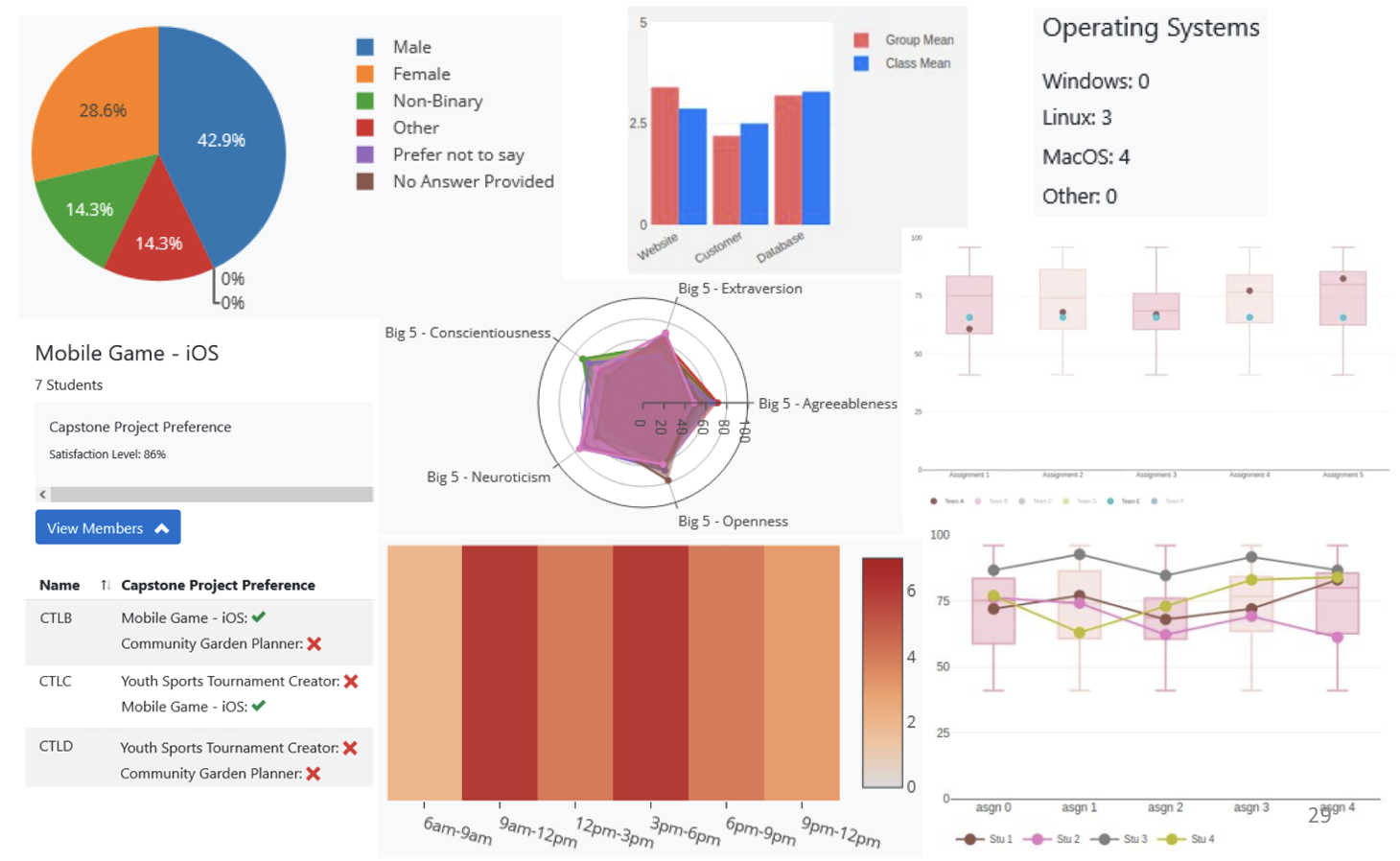
By: Angie Pinchbeck
(Fourth year undergrad, UBCO)
September 2023 - December 2023
|
Description:
As AI gains popularity in our society, it is important to explore
various aspects of people's trust with AI. Angie focused on a literature
review of models of trust and studies on measuring trust in technology and
trust in AI. The results of the review led to the design of a survey student
that gauges students' trust in AI use for education and the role of data
visualization in that context.
|
|
Visualizing Collaboration

By: Kiamehr Khademi
(Third year undergrad, UBCO)
September 2023 - April 2024
|
Description:
As part of a larger GitHub analysis project, Kia used the GitHub API to
extract various events from GitHub projects and investigated different
approaches to summarize repository activities relevant to issues and projects.
|
|
Promoting Self-Regulated Learning in CS1
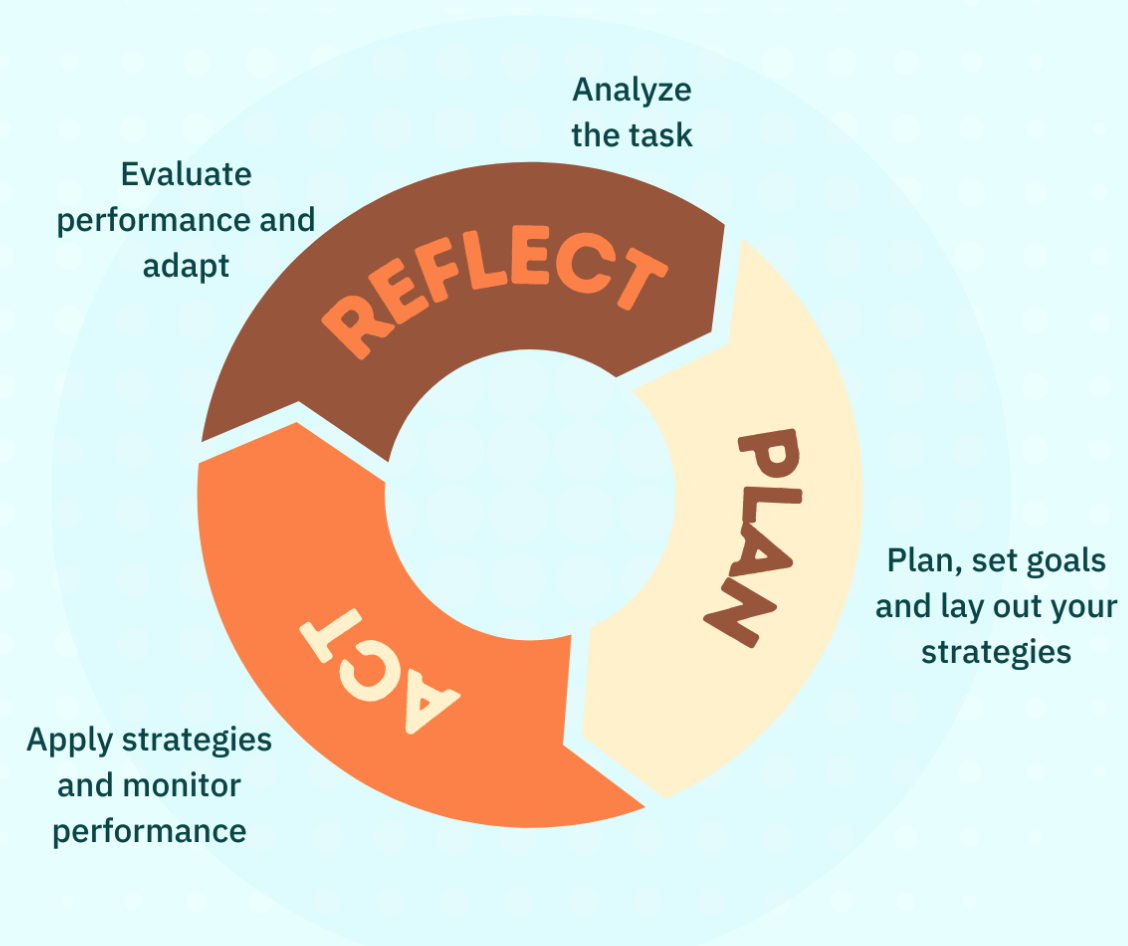
By: Keyvan Khademi
(Fourth year undergrad, UBCO)
September 2022 - April 2023
|
Description:
Keyvan is investigating self-regulated learning techniques and exploring
ways to integrate them into an online learning platform. Keyvan implemented a
goal setting routine to support the planning, execution, and reflection phases
of self-regulated learning. Although a large proportion of students reported
they engaged in some form of self-regulated learning, we did not have enough
usage data in the learning platform to evaluate the utility of the feature.
|
|
Developing a Simulation Model of Team Dynamics
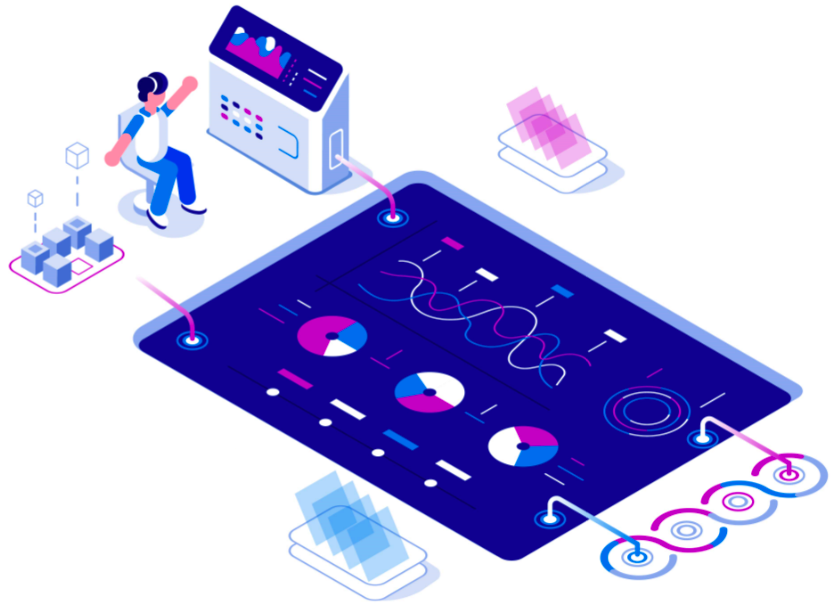
By: Novia Fan
(Fourth year undergrad, UBCO)
September 2022 - April 2023
|
Description:
Novia is interested in formalizing existing models of team dynamics and
building a simulation model to demonstrate a variety of team factors. As part
of her thesis, she reviewed numerous theories on team models and team success
and synthesized the factors that seem most relevant to team effectiveness.
Among these, she developed two dynamic Bayesian networks to model a team
member's shared mental model and commitment level. These models illustrated
differences in behaviour among team members that differ in the strengths of
their shared mental model or their commitment levels in the team. From there,
she discussed the gaps between the theoretical models and data needed to learn
the dynamic Bayesian networks. Her work is published at the IEEE Frontiers in
Education conference.
|
|
Gender Differences in Leaderboard Use
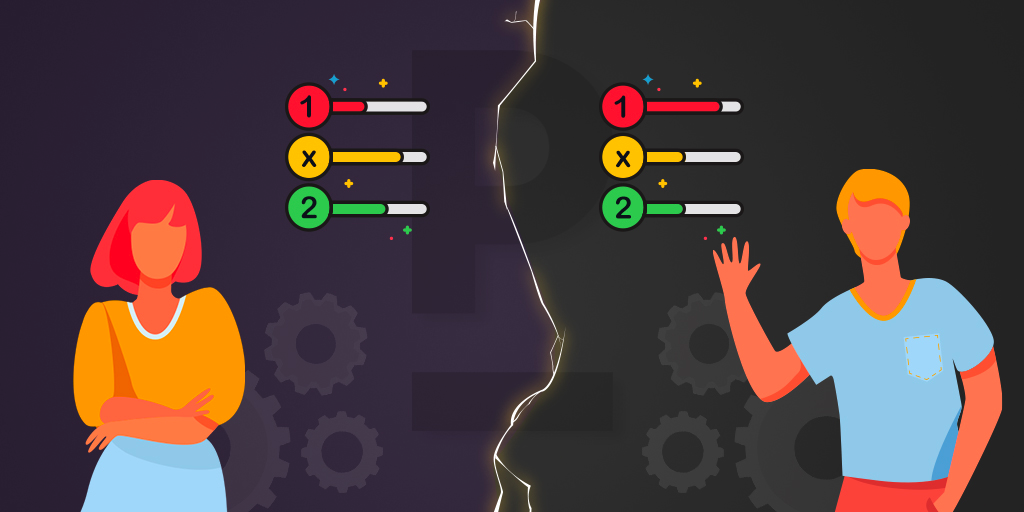
By: Lydia Lin
(Fourth year undergrad, UBCO)
September 2022 - April 2023
|
Description:
Lydia is exploring gender differences in leaderboard usage. She
developed four types of challenges in an online learning platform that foster
different pedagogical habits. In addition, she extended these challenges to
support teamwork rather than individual competition. Although we observed some
differences in usage between male students and female students, we did not
have enough usage data to draw conclusions about the utility of these
challenges or the leaderboard.
|
|
Benchmarking team formation algorithms

By: Keyvan Khademi
(Fourth year undergrad, UBCO)
September 2022 - April 2023
|
Description:
Keyvan setup a simulation environment to benchmark several team
formation algorithms. This work involved first synthetically generating
students and classes of students and pedagogical scenarios that specify the
constraints of the problem. The environment interfaced with several algorithms.
The simulations were run over multiple trials and the results were averaged
over these trials and presented in graphs. Through this analysis, we identified
some issues with a new algorithm we developed and laid out the specific
parameters to test in the next set of benchmarking experiments.
|
|
Exploring Different Guessing Models on Test-Taking Data
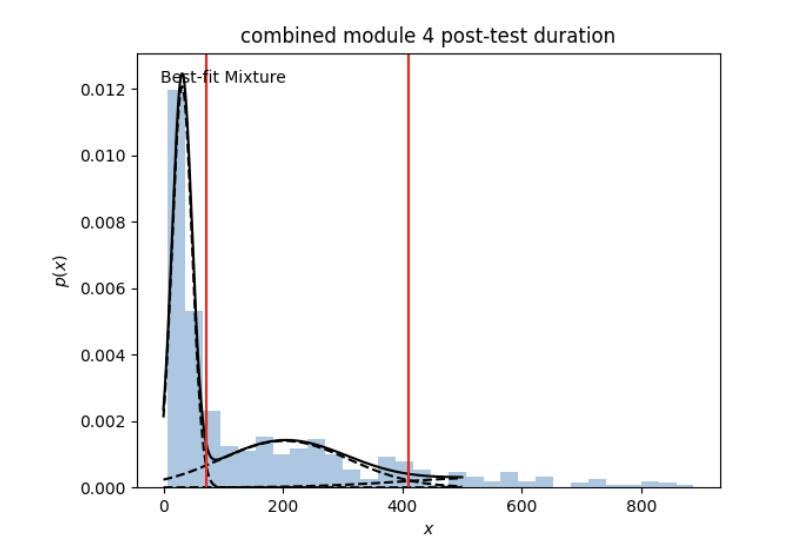
By: Novia Fan, Quinn Marshall, Lydia Lin
(Fourth year undergrad, UBCO)
January 2023 - April 2023
|
Description:
The students explored a variety of techniques that extend beyond a
simple model of guessing behavior and compared the performance and implications
of these different models. These models include a visual inspection of response
time distributions, surface feature models, mixture models, common k-second
threshold model, and models that are combined with accuracy. A series of
analyses were conducted which compared these models at different levels (such
as by person, by module, and by year).
|
|
A Review in Decolonization in Science Education
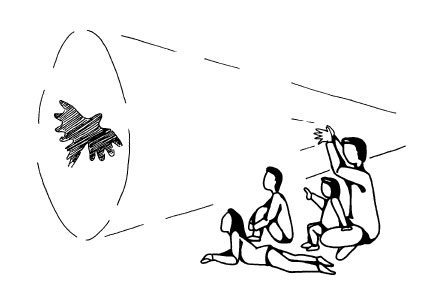
By: Angie Pinchbeck
(Fourth year undergrad, UBCO)
May 2022 - August 2022
|
Description:
This is a literature review course where the first half of the course
focused on decolonization and the second half of the course focused on
indigenization. With Angie's background, she explained these complicated
concepts in a non-technical way, which is especially important to those new to
this literature. She also analyzed the literature thoroughly to highlight the
merits of each article based on its relevance to the Indigenous culture. Her
report also summarizes ways to decolonize and indigenize the Computer Science
curriculum.
|
|
Auto-Testing and Personalized Feedback
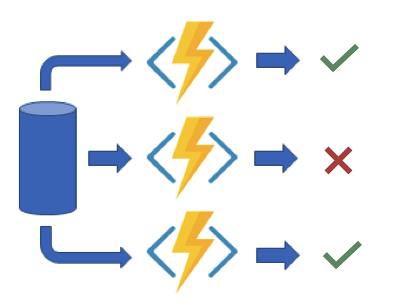
By: Seth Akins
(Third year undergrad, UBCO)
May 2022 - August 2022
|
Description:
This course focuses on the development of a JUnit test framework. Although we have an existing framework in place, several key features to facilitate JUnit test writing are still missing. Seth dedicated a lot of effort towards writing different types of JUnit tests in order to become familiar with the framework. Together, we identified several features for improving the framework. In the end, Seth implemented those features and tested them with new JUnits to ensure they operate properly.
|
|
Using Bayesian Network to Infer Concept Mastery
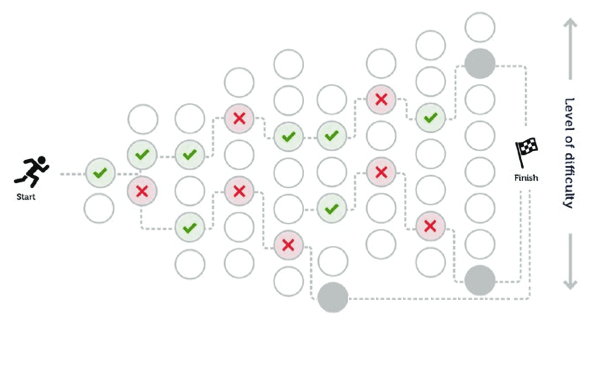
By: Carson Ricca
(Fourth year undergrad, UBCO)
September 2021 - April 2022
|
Description:
Based on a course concept map, Carson developed a dynamic Bayesian
network (DBN) to infer concept mastery. Due to the complexity of the model,
the DBN was decomposed into smaller, more computationally feasible submodels
for real-time inference. The model was evaluated in simulation speed and
student-type behaviour. Ultimately, this DBN would be incorporated into an
online practice system that suggests the difficulty level of the practice
question for the student to work on based on the system's belief on the
student's level of concept mastery.
|
|
Recommending Video Resources to Support Learning

By: Abhineeth Adiraju
(Fourth year undergrad, UBCO)
September 2021 - April 2022
|
Description:
When students are lost, they often go to YouTube for help. The
motivation is to implement a video recommendation system that supports
in-class learning. There are generally two types of recommendation systems:
content-based versus collaborative filtering. Content-based systems make
suggestions based on the content and metadata associated with the videos,
while collaborative filtering systems make suggestions based on the relative
ratings of other similar users. Although collaborative filtering systems are
great at handling the exploitation-exploration tradeoffs, it also suffers
from the cold start problem. In practice, researchers typically combine both
types of recommendation systems somehow. This thesis explores the parameters
that impacts how these two types of systems should be combined in the
context of recommending educational videos.
|
|
The Design of a Mathematics Mobile Learning Game

By: Kathryn Ng
(Fourth year undergrad, UBCO)
September 2021 - April 2022
|
Description:
This thesis is a systematic review of the literature in the area of
mobile educational games for middle school mathematics. Kat began by
reviewing other systematic reviews in related areas, then conducted her own
research and analysis. Her work focused on assimilating all the articles at
the intersection of design frameworks, educational frameworks, mobile games,
educational games, and mathematics for middle school children. Based on her
synthesis, Kat developed a new framework for designing mobile learning games
for mathematics.
|
|
Developing a Language Learning Game

By: Hex Zhang
(Fourth year undergrad, UBCO)
September 2021 - April 2022
|
Description:
A review of existing French language learning apps is presented, along
with an analysis of the problems associated with these games. To address
these problems, Hex implemented a beginner's French learning game that
supports several aspects of reading - syllable pronounciation, syllable
reading and recognition, combining syllables into words, breaking up
words into syllables, and identifying the written sentence associated with
the spoken sentence. This mobile game also has a main llama character that
serves as the study companion for the user so that the user can use the
earned tokens to dress up the llama as they desire.
|
|
Mastery Learning in Computer Science
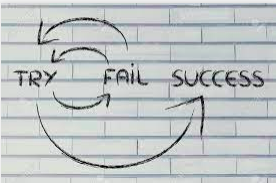
By: Opey Adeyemi
(Fourth year undergrad, UBCO)
September 2021 - April 2022
|
Description:
Our education system has been around for centuries and have undergone
very little change. Most of our classes are still heavily teacher-centered
rather than student-centered. The problem is exacerbated when the class size
increases when instruction becomes more and more standardized and less and
less personalized. This thesis reviews the theory of mastery learning which
was proposed by Bloom in 1968 and discusses applications of this learning
theory in CS education. Today, we operate under the need for large class
sizes and the constraints that arose from teaching at scale. We propose a
framework for implementing ideas from mastery learning so that individual CS
classrooms can still take advantage of the benefits of the theory.
|
|
A Code Metrics Dashboard

By: Sirus Wang
(Fourth year undergrad, UBCO)
September 2021 - April 2022
|
Description:
This work consists of a simple dashboard that implements the summary of
course events, exam events, and assignment events in an online course
platform. The dashboard also presents a summary of grading feedback for each
type of questions that are available in the system. An initial exploration
of a variety of code metrics was done as part of this work.
|
|
Viewing Student Skills

By: Thomas Buchholz, Brian Zhou, Quan Le, Hong Liew
(Fourth year undergrad, UBCO)
January 2022 - April 2022
|
Description:
This project course is a website extension of some ideas used to
automatically extract skills from text. The system can parse skills from
uploaded resumes and scraped postings. The system is designed to help
student users improve the skills in their resumes and to search to jobs that
best match their skills. The administrator user can also see which skills
are most common for each profession and what skills users indicate they
have.
|
|
Educational Data Analysis

By: Novia Fan, Rick Feng, Mathew de Vin, Opey Adeyemi, Abhineeth
Adiraju, Carson Ricca
(Fourth year undergrad, UBCO)
September 2021 - April 2022
|
Description:
The students developed various research questions they wanted to ask
about a course. The topics covered by these questions include: participation
trends, reading patterns, individual quiz performance, team performance,
team satisfaction and dynamics, team formation algorithm, and programming
difficulty.
Then they researched a wide variety of statistical analyses to tackle those
questions. The work involved programming to do data processing and data
analyses, research on statistical methods, programming in their individual
projects, and reporting.
|
|
An Online Puzzles Web App

By: Opey Adeyemi, Mathew de Vin, Lydia Lin, Kiet Phan
(Fourth/Second year undergrad, UBCO)
September 2021 - April 2022
|
Description:
The students developed a brand new website to host a series of
computational puzzles for children. The site uses ReactJS, NodeJS, NextJS,
TypeORM, PostgresSQL, HTML, SCSS, and Bootstrap.
The site hosts an online version of a scavenger hunt which also supports an
in-person geocaching game. For the online version, there is a map of puzzles
which you can solve online. For the in-person version, there is a map of
puzzles, and each puzzle has a hint that helps you locate it. Once you find
the puzzle, you will see a QR code. By scanning it, you can solve the puzzle
online.
|
|
Developing Experimental Controls for User Studies

By: Karan Gohil, Kiet Phan
(Fourth/Second year undergrad, UBCO)
September 2021 - December 2021
|
Description:
Karan and Kiet learned about experimental design for a data
visualization project. Using mock data, they generated a variety of graphs
for each visualization task and condition. The experiment measured the
accuracy, task completion time, and preference for each condition. The
conclusions identify the best visualization in each scenario.
|
|
Learning the Development Process in a Large Project
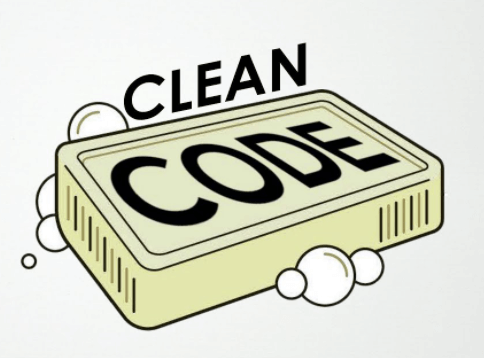
By: Khai Luong, Anshul Dhariwal, Guy Kaminsky, Prajeet Singh
(Fourth year undergrad, UBCO)
September 2021 - December 2021
|
Description:
The students became familiar with an existing project and code base.
Rather than focusing on learning the technology stack and implementing many
new features, the goal was to develop project features while conforming with
existing code standards. A large part of this was the emphasis on the peer
review process and writing good, clean code.
|
|
Web Development and Testing
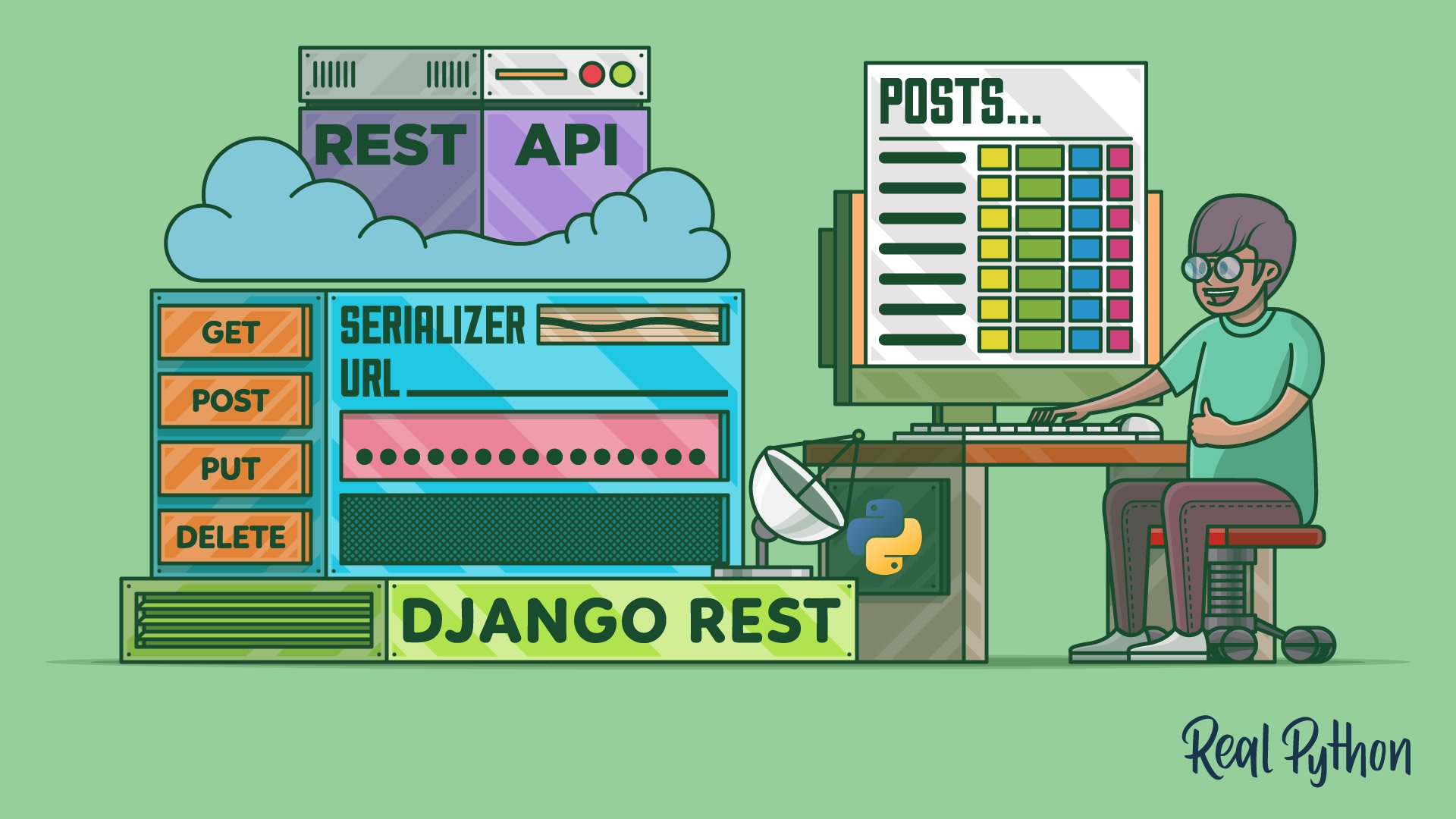
By: Liying Yang, Jia Quan Wee
(Fourth year undergrad, UBCO)
September 2021 - December 2021
|
Description:
Liying and Jia Quan worked on adding new features to an existing
project. They used the Django framework and worked on both front and
back-end changes related to the algorithm and peer evaluation aspects of the
project.
|
|
Investigating into Game Demographics
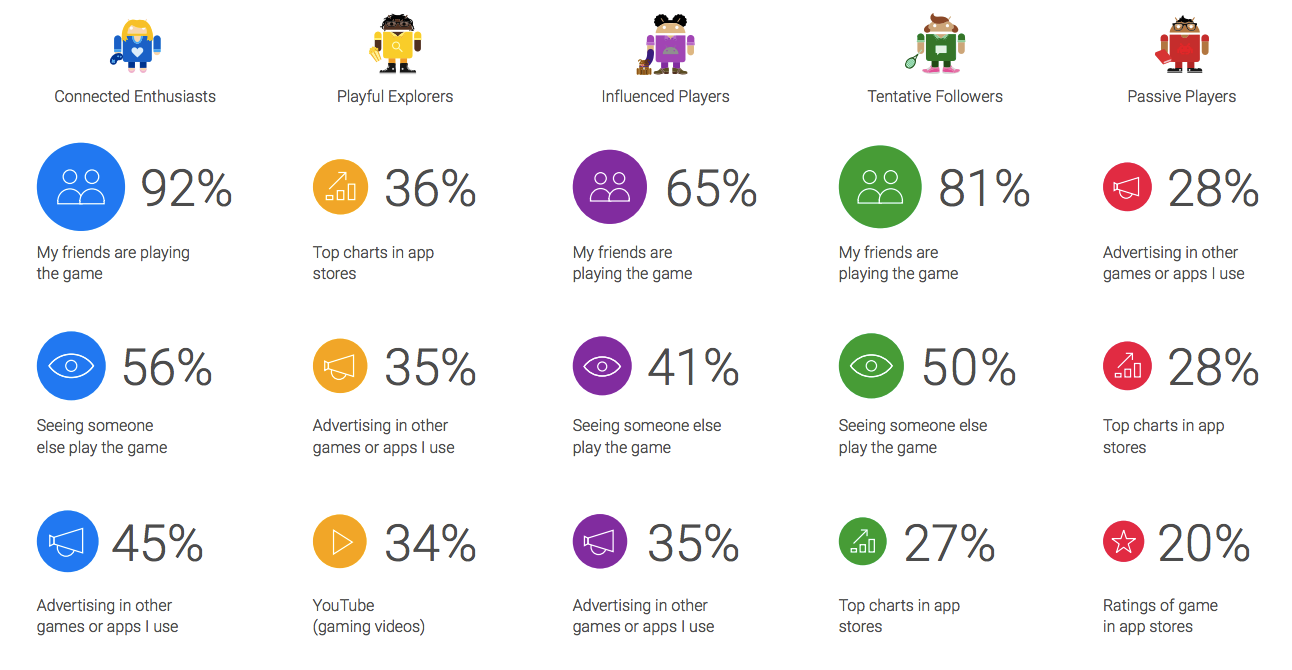
By: Haneen Hijleh
(Fourth year undergrad, UBCO)
Summer 2021
|
Description:
This project is an initial investigation in understanding who plays
which games. Haneen is particularly interested in developing educational
games, so the purpose of this project is to identify game design criteria
that make specific games more attractive for certain demographics. This
investigation involves a dive into relevant literature as well as an
exploration of published data on well-known games.
|
|
Unit Testing

By: Joshua Kranabetter
(Fourth year undergrad, UBCO)
Summer 2021
|
Description:
Joshua is learning the in's and out's of unit testing in order to help
build an autograding system. He is working with a variety of questions that
deals with basic programming concepts, such as system output, random data,
user input, control flow, methods, arrays, and object oriented programming
concepts. Part of this work involves providing thorough test cases to assess
student answers. Another part of this work ensures that the unit tests can
provide personalized feedback to students.
|
|
Visualizing Team and Individual Analytics
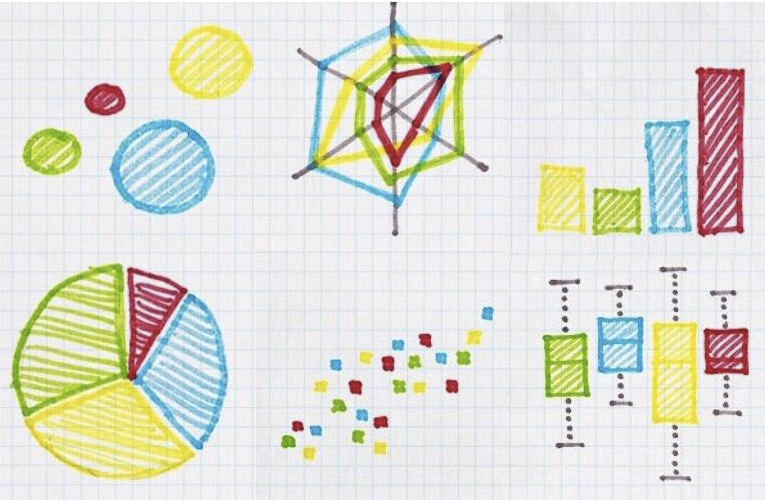
By: Callum Takasaka
(Fourth year undergrad, UBCO)
September 2020 - April 2021
|
Description:
With a tool that supports instructors to form teams given a wide array
of parameters, it is difficult to ensure that the resultings teams meet the
needs of the class and the preferences specified by the instructor and
students. Callum design and built various visualization mechanisms to help
users make better decisions about the teams under scrutiny. In particular,
his work (i) enables instructors to see desired information about students
and teams, (ii) compares which sets of teams are better for the class, (iii)
helps instructors make decisions about potential team changes, (iv) uses
graded material to visualize student and team performance over time, and (v)
detects problems within a team and acosss multiple teams.
|
|
A Methodological Evaluation of Clustering on Source Code Data
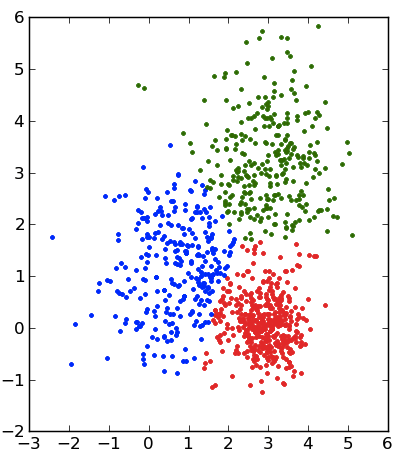
By: Lucas Pozza
(Fourth year undergrad, UBCO)
September 2020 - April 2021
|
Description:
In recent years, clustering has been used to analyze source code in the
computer science education field. However, there has been little
understanding regarding the choice of the parameters used in clustering
analysis and how those choices impact the results in this domain. In his
work, Lucas implemented three clustering algorithms and compared their
performance on a CS1 data set.
|
|
A Semi-Supervised Approach to Discover Error Patterns
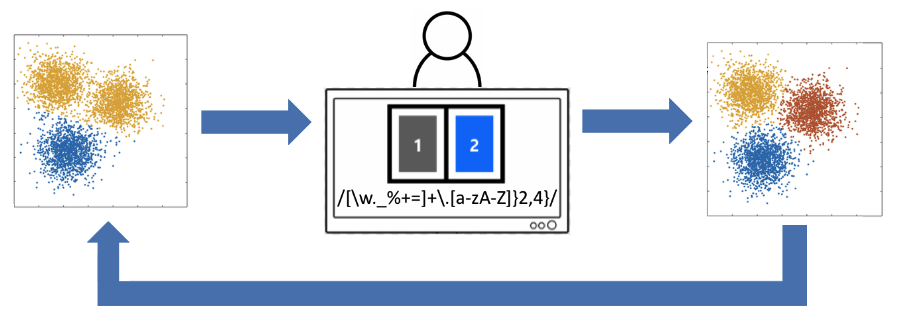
By: Jinyang Yao
(Fourth year undergrad, UBCO)
September 2020 - April 2021
|
Description:
Supervised learning techniques have the main drawback of requiring
labeled data which is typically unavailable and labour intensive to build.
Unsupervised learning techniques are difficult to evaluate because there is
no ground truth to the data. We explore a semi-supervised learning approach
to discovering error patterns in source code. The approach uses a
combination of an unsupervised learning technique, a active learning
strategy to suggest data points for human review, and human labeling of
data.
|
|
Automatically Extracting Skills from Job Postings
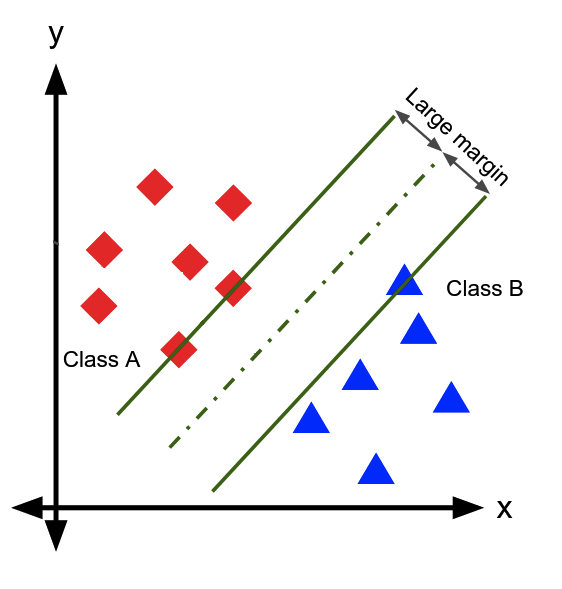
By: Xinyuan Chang
(Fourth year undergrad, UBCO)
September 2020 - April 2021
|
Description:
Due to the importance of re-skilling and up-skilling in today's
society, we explore the potential for automatically extracting skills from
job postings in order to better understand the job market trends. Through an
intercoder reliability process, Xinyuan and Bingxin built a small labeled
data set. This data was processed using basic natural language techniques.
He then applied 10-fold cross validation to evaluate three classification
algorithms: naive bayes, support vector machines (SVM), and k-nearest
neighbours. Using the metrics, accuracy, precision, recall, and area under
the ROC curve, he found that SVM worked best on this data.
This work was published at the Learning Analytics and
Knowledge (LAK) conference in 2022.
|
|
An Initial Comparison of Industry Skill Needs and Educational Training

By: Bingxin Wang
(Fourth year undergrad, UBCO)
September 2020 - April 2021
|
Description:
Given a machine learning algorithm trained to extract skills phrases
from free-form text, Bingxin analyzed the skill needs in industry, skills
offered by university courses, and skills self-reported by students.
Speficically, Bingxin web scraped a number of job positings from 20 sectors
according to the North American industry classification system (NAICS). This
provided a breadth analysis of industry skill needs. Then she conducted a
depth analysis by scraping for job postings within one sector, and
specifically those with a job title of "software programmer" (and variants).
Lastly, she extracted skills from computer science course syllabi. Her
analysis identified skill gaps between jobs vs. courses, courses vs.
students, and jobs vs. students.
This work was published at the Learning Analytics and
Knowledge (LAK) conference in 2022.
|
|
Web Design and Usability
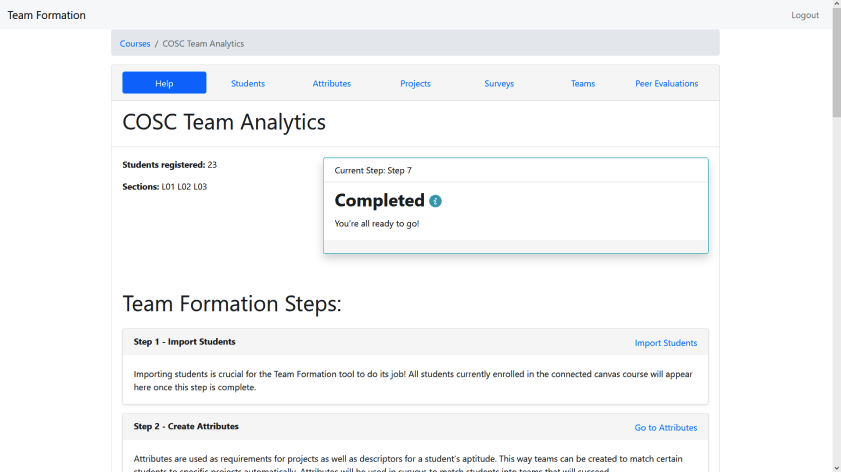
By: Opey Adeyemi, Brianna Marshinew, Mathew de Vin, Kanishka Verma
(Third year undergrad, UBCO)
January 2021 - April 2021
|
Description:
The students took an existing web application and revamped the
look-and-feel of the entire user experience. This involves conducting a
needs analysis, designing mockups, ensuring various usability guidelines are
met, visualizing complex data, as well as developing new features to
facilitate navigation.
The main tools of development include Github, Django, HTML, CSS, and
JavaScript.
|
|
Front-End Migration to Angular JS

By: Keyvan Khademi, Carson Ricca, Opey Adeyemi, Elias Pinnos
(Third year undergrad, UBCO)
January 2021 - April 2021
|
Description:
Due to the flexibility of Angular JS, this project involves the
migration of the front-end of an existing web project to Angular. The work
involved the development of various APIs to the backend, as well as coding
all the new Angular components.
The main tools of development include Github, Django, HTML, CSS, JavaScript,
and AngularJS.
|
|
A Step Towards Immediate Feedback

By: Rachelle Gelden
(Fourth year undergrad, UBCO)
September 2020 - December 2020
|
Description:
The purpose of this project is to design and implement an autograding
solution for marking CS1 exercises. The autograding work consists of the
following components: (i) the development of specific tests to use, (ii) a
submission framework, and (iii) integration with a plagiarism detection
tool. The first part involves the development of tests and test templates
that can be used to autograde assignments. The second part involves the
development of a framework that allows students to submit their assignment,
receive immediate feedback, and resubmit as many times as needed.
|
|
Technology Design for Seniors

By: Brianna Marshinew
(Fourth year undergrad, UBCO)
September 2020 - December 2020
|
Description:
Brianna reviewed issues that seniors encounter when using technology.
She read papers to help understand seniors needs as well as their technology
preferences and barriers. She also surveyed existing literature for
approaches to designing technology with seniors in mind. These papers
covered topics including: assistive technology, technology to support
dementia, smart home and pervasive technologies, technologies to reduce
social isolation, and self-tracking technologies. She also surveyed papers
on co-design methods involving seniors.
|
|
Technology Design for Children

By: Parsa Rajabi
(Fourth year undergrad, UBCO)
September 2020 - December 2020
|
Description:
Parsa reviewed issues that children have with technology use, from the
perspective of children as the end-users, parents as guardians, and teachers
in the classroom. To better understand children's needs and preferences
around technology, he read papers that reviewed technology usage guidelines
and studies that report impact of technology use on children.
Specific case studies include children playing
Minecraft, interacting with robots, experiencing embodied learning
technologies, and using augmented reality.
He also surveyed existing literature for approaches to designing technology
with children as end-users. A major part of this involves studies that
investigate children's roles in participatory design processes and methods
to elicit children's preferences.
|
|
Web Development Frameworks

By: Keyvan Khademi, Carson Ricca, Opey Adeyemi
(Third year undergrad, UBCO)
September 2020 - December 2020
|
Description:
This course provides an introduction to using frameworks for web
development in a specific project that involves gamification and learning
analytics. The students reviewed basic front-end technologies, learned the
Django framework, and developed new features in the web application.
|
|
Genetic Algorithms

By: Callum Takasaka
(Fourth year undergrad, UBCO)
May 2020 - August 2020
|
Description:
Callum is interested in combining biology and computer science, so he
is learning about genetic algorithms. This course is an introduction to
standard methods of genetic algorihtms, where Callum implemented the
algorithm and applied them to model robotic controllers, traveling salesman,
and class scheduling problems. He also compared the modeling capabilities of
genetic algorithms with those of evolutionary programming and genetic
programming.
|
|
Personalized Video Recommendation System
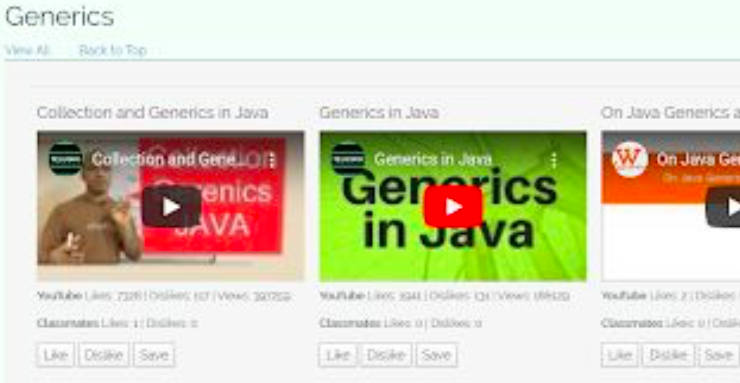
By: Marlie Russell
(Fourth year undergrad, UBCO)
September 2019 - April 2020
|
Description:
Students often search YouTube for help before they ask friends or
professors. This project explores the utility of a video recommendation
system to support personalized learning in a CS2 course. Marlie built a
website that connected to the YouTube API to fetch videos related to certain
CS2 topics. She preprocessed available data and filtered videos based on
a combination of various rankings. Recommendations of videos were made to
student viewers, and subsequent recommendations were augmented based on
individual history. An initial user study was done, unfortunately, due to
the onset of COVID, we were unable to obtain enough data to evaluate the
utility of this system.
|
|
Automatically Diagnosing Coding Errors

By: Jeff Bulmer
(Fourth year undergrad, UBCO)
September 2017 - April 2018
|
Description:
Poor coding practices exhibited in student code have gone largely
unaddressed in the literature. While some of these habits may not lead to
erroneous code, they may nonetheless indicate areas of difficulty and lead
to poorly structured programs. This project begins to tackle the problem by
first collecting real-time data from students, automatically detecting
patterns of bad habits, and summarizing these habits as error metrics in a
code visualizer. This work is subsequently presented at
the 23rd ACM sponsored Western Canadian
Conference on Computing Education at Victoria in May 2019.
paper
|
|
Animating the Coding Process
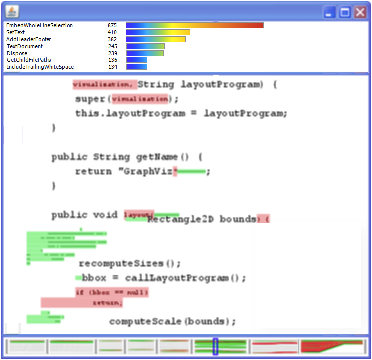
By: Angie Pinchbeck
(Third year undergrad, UBCO)
September 2017 - April 2018
|
Description:
Sometimes instructors get assignment submissions and have no way to
figure out why the student ended up coding in a certain way. To help resolve
this issue, Angie created a code visualizer that takes real-time programming
data as input, animates the programming process, and displays error metrics.
This work is subsequently presented at the
the 23rd ACM sponsored Western Canadian
Conference on Computing Education at Victoria in May 2019.
paper
|
|
Software to Promote Students as Producers

By: Tunde Kadiri
(Fourth year undergrad, UBCO)
January 2018 - April 2018
|
Description:
To help students become an active learner, Tunde is building an app
that lets students create study questions and test themselves with their
friends. The app also lets a teacher motivate students to take ownership of
their own learning by asking students to create review questions and grading
them.
|
|
Exploring Unplugged Coding Activities for Young Children

By: Ashley Wong
(Fourth year undergrad, UBCO)
September 2016 - April 2017
|
Description:
After investigating a variety of non-screen technologies for helping
young children learn coding, Ashley designed and built a boardgame called
Code Chase that introduces basic programming concepts (such as variables,
conditional statements, loops) to grade schoolers. She piloted iterations of
her game with selected children, university non-programming students, as
well as a class of Grade 5 students. The game was well-received and students
showed indications of positive learning outcomes.
|
|
Automated Formative Assessment Tool

By: Ashley Segert
(Fourth year undergrad, UBCO)
September 2016 - December 2016
|
Description:
Ashley explored different types of automated grading techniques and
re-designed them to allow for formative feedback in a programming
environment by analyzing various code metrics. She developed a prototype
plugin for Eclipse so that it would automatically evaluate student programs
and provide qualitative feedback.
|
|
Usability Testing

By: Wanjak Nino Gonzales
(Fourth year undergrad, UBCO)
September 2016 - December 2016
|
Description:
As an advanced topic in human computer interaction, this course provides
three case studies for Nino to conduct usability methods for real-world
clients.
|
|
Machine Learning

By: Bronson Bouchard
(Fourth year undergrad, UBCO)
May 2016 - August 2016
|
Description:
Bronson is investigating various machine learning techniques and applying
them to natural language text processing. He is planning on developing some
prediction software to automatically classify technology skills and user
profiles in order to help users better understand the types of skills they
need for life long learning.
|
|
Analytics in First Year Computer Science
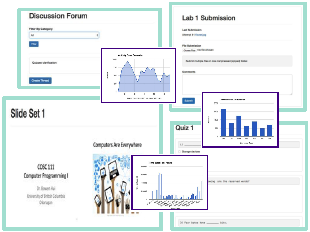
By: Shannon Farvolden
(Fourth year undergrad, UBCO)
September 2015 - April 2016
|
Description:
As a way to better understand how students in first year Computer
Science is doing, a web-based learning management system called Course
Canvas was developed. The system includes pages for course content,
submission system, a set of slides organized by topics, grades reporting,
quizzes, op- tional surveys, and a discussion forum. Analytics is used to
track website activity and correlated with student exam performance in order
to identify the study habits of A students.
This work was subsequently published in
the 22nd ACM sponsored Western Canadian
Conference on Computing Education (WCCCE) at Abbortsford in May 2017.
early poster,
paper,
slides,
thesis
|
|
Modern Educational Technology
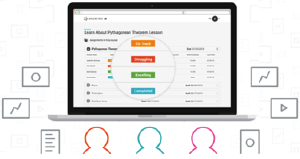
By: Fiona Tse
(Fourth year undergrad, UBCO)
January 2016 - April 2016
|
Description:
A literature review was conducted to examine the use of educational
technology in post-secondary education across different cultural settings.
Due to dated journal articles found, the survey was expanded to include a
review of several online educational forums and data collection from student
responses. A total of 38 technologies were categorized and suggestions to
use these technologies in an innovative way was presented.
|
|
Examining the Effect of Collaboration in an Online Learning Environment

By: Matthew Bojey
(Fourth year undergrad, UBCO)
September 2014 - April 2015
|
Description:
One of the hardest concepts to grasp for first year Computer Science
students is the abstract data structure called linked list. To help
students master the various skills involved in understanding this structure
and writing the code to manipulate it, this web application was built with
exercises to let students practice what they learn. To enable students to
work together, an online chat system is available to allow students to solve
problems with others who are online at the same time. A study was conducted
with 67 students investigating the impact of collaboration in this setting.
As a result, we found that while students may take longer to work
collaboratively, it is more efficient for students to solve problems in
pairs than alone because students made fewer mistakes while working
together.
This work was subsequently published in
The Frontiers in Education (FIE) at Erie in
October 2016.
paper,
slides,
thesis
|
|
The Source

By: Raffi Kudlac
(Fourth year undergrad, UBCO)
September 2014 - April 2015
|
Description:
This game is an interactive energy simulation where the user is charged
with the task of providing energy to a growing population. As time
progresses the city's population grows and the demand for power increases.
The user must supply more and more power to meet the demand, but each type
of power has different consequences. The user's goal is to survive as long
as possible by building a thriving city.
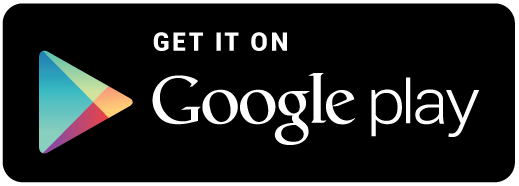 thesis
thesis
|
|
Visualizing and Interacting with Breast Cancer Outcomes in B.C.
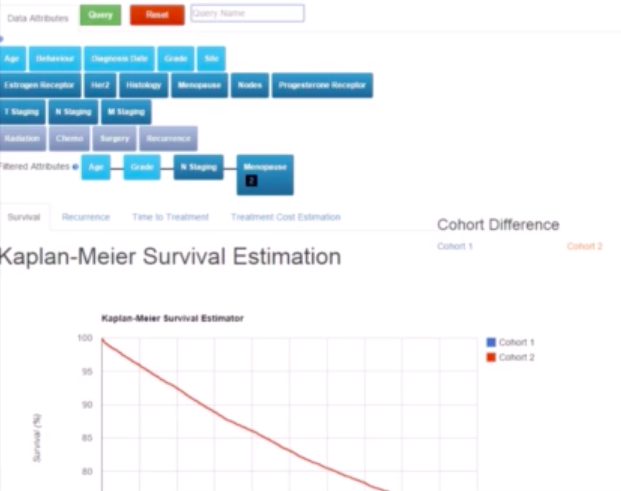
By: Duncan Szarmes
(Fourth year undergrad, UBCO)
September 2014 - April 2015
|
Description:
A project supported by the BC Cancer Agency, this system is a web
application that allows users to visually query complex patient data to
compare survival and recurrence rates for two groups of patients. Various
interaction and visualization techniques were implemented and a pilot user
study involving medical staff shows encouraging results.
|
|
Test Driven Development

By: Duncan Szarmes
(Third year undergrad, UBCO)
September 2013 - December 2013
|
Description:
Rather than writing a software program and then testing it to ensure its
proper functionality, test-driven development (TDD) is an industry standard
that revolutionizes the way programmers think. The idea is to first develop
a battery of tests that define how the software should properly behave, and
then write the code to meet those test expectations. This course was
designed around a modern web framework called Ruby on Rails.
|
|
Stranded Sloth
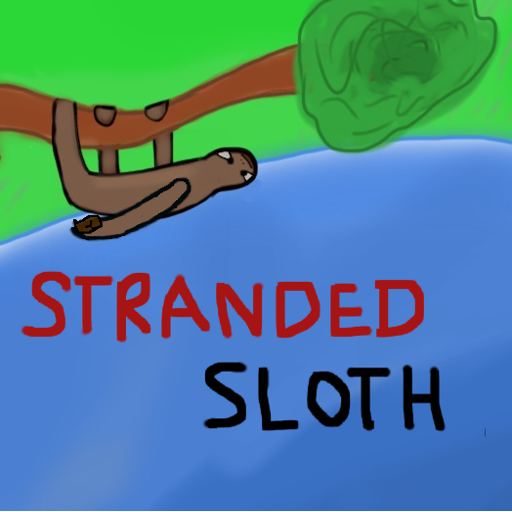
By: Duncan Szarmes, Raffi Kudlac
(Third year undergrads, UBCO)
Summer 2013
|
Description:
A dual-platform mobile game about a sloth stranded on a tree. Your job
is to prevent the sloth from getting attacked by all 3 types of predators!
Comes with 3 different settings with increasing difficulty as you play.
The students reviewed game development concepts, learned a new programming
language, and developed the game from scratch. Stranded Sloth is available
on both the Google PlayStore and the Apple AppStore and was downloaded over
1000+ times within the first few months of its debut.


|
|
System Analysis
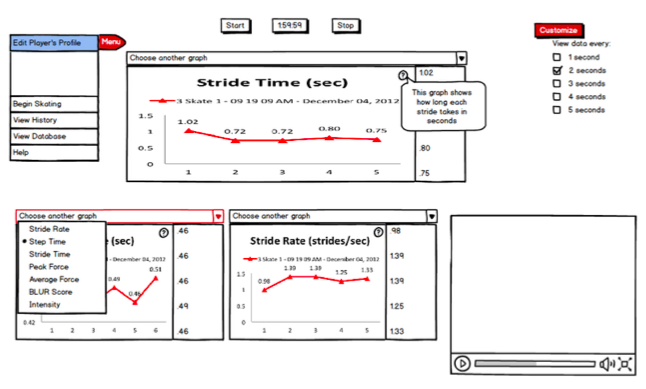
By: Brittany Nicol
(Fourth year undergrad, UBCO)
January 2013 - April 2013
|
Description:
An in-depth analysis of a new product conceptualized by the owner of
BLUR Hockey.
The first part of this analysis is a feasibility study conducted using the
PIECES framework and evaluated based on technical, operational, schedule,
and economic feasibility.
The second part of this analysis consists of a detailed requirements
elicitation activity, documenting all the functional and non-functional
requirements of the recommended solution, as well as the environmental
constraints.
The last part of this project involves a formal design component of the
recommended solution, which is documented in UML and with accompanying UI
mockups.
|
|
Intelligent Tutoring Systems
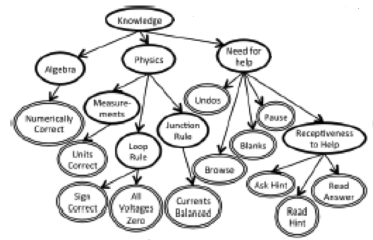
By: Matthew Bojey
(Second year undergrad, UBCO)
January 2013 - April 2013
|
Description:
A human tutor uses a lot of information to estimate how best to help a
learner. To implement a tutoring system that mimics the helpful guidance of
a human tutor, standard systems uses a probabilistic modeling approach
called dynamic Bayesian networks (DBN) to statistically infer what is known
about the learner. With consideration of learning the Kirchhoff Rules in
Physics, a DBN was constructed. An inference algorithm and a series of
simulations were ran to verify the model.
This work continued into a URA project and was subsequently published in
the 12th International
Conference on Intelligent Tutoring Systems (ITS) at Honolulu in June 2014.
paper,
poster
|




























































